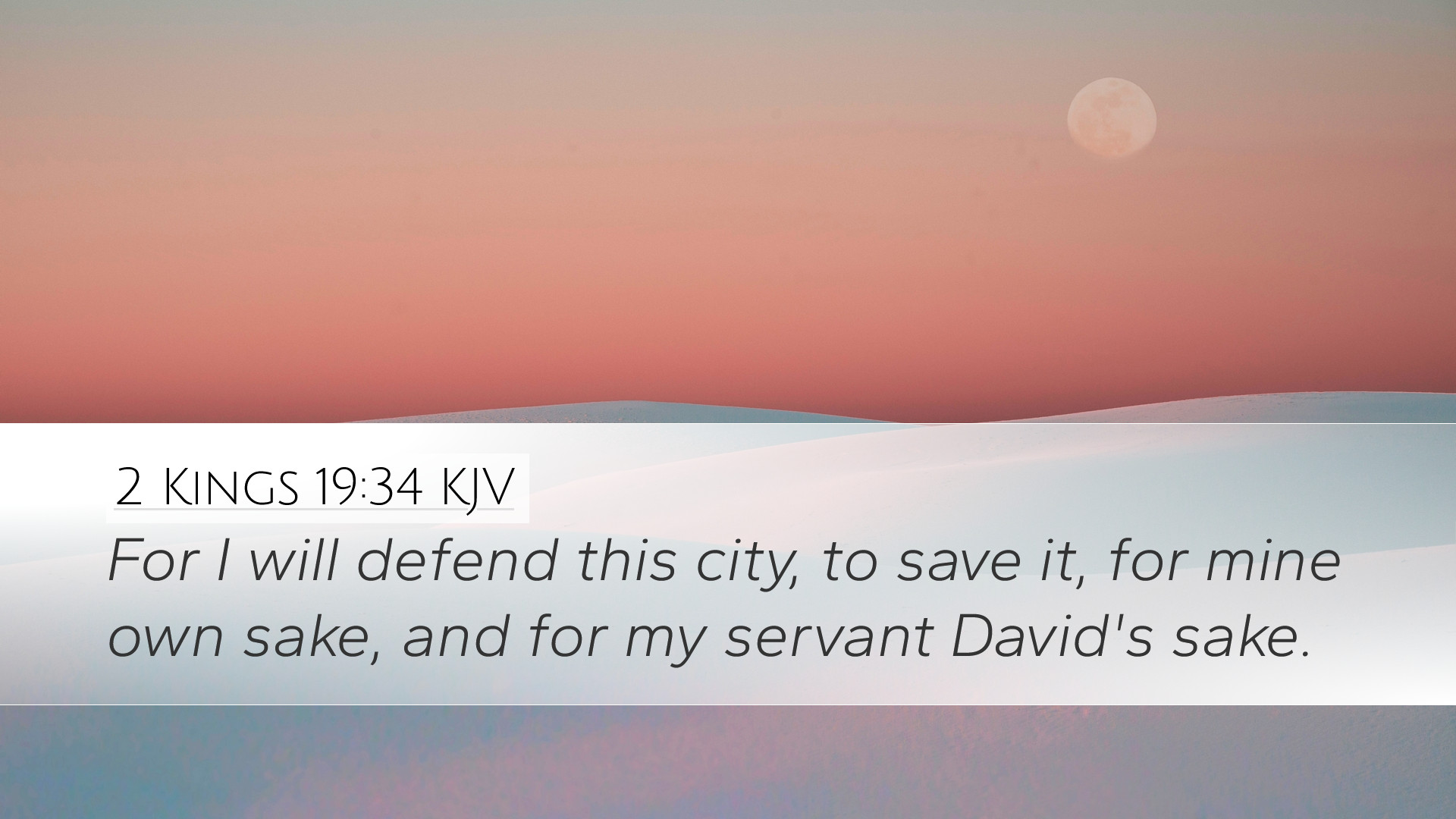Commentary on 2 Kings 19:34
2 Kings 19:34 states: "For I will defend this city to save it for my own sake and for the sake of David my servant." This verse captures a significant moment in the narrative of King Hezekiah's reign and God's providential care over Jerusalem. Here, we will explore various insights drawn from respected public domain commentaries.
Contextual Background
The backdrop of this verse is critical for understanding its application and significance. Hezekiah, king of Judah, faced the imminent threat of Assyrian invasion led by King Sennacherib. The Assyrian forces were powerful and had already laid waste to many cities in Judah. Hezekiah’s act of turning to the Lord in prayer reflects both his leadership and dependence upon divine intervention.
Theological Insights
This verse emphasizes God’s sovereignty and faithfulness. He assures Hezekiah that He will defend the city, demonstrating that God's plans cannot be thwarted by earthly powers.
-
Divine Protection:
God's promise to defend the city indicates a divine assurance of protection. Matthew Henry notes, "The preservation of Jerusalem was not due to its people’s merit but to God’s covenant with David." This underlines the grace of God as He acts for His own glory and for the legacy of His chosen servants.
-
Covenant Relationship:
Reference to David highlights the enduring covenant God made with David regarding his lineage and the city of Jerusalem. Albert Barnes explains, "For David’s sake" signifies loyalty to His promises, ensuring that the lineage of David will not fall into ruin.
-
Encouragement in Despair:
This promise serves as an encouragement to believers during trying times. Adam Clarke notes, "In darkness and despair, God’s light shines as a beacon of hope, assuring the faithful of their protection."
Application for Today's Believer
This verse has profound implications for Christians today. The certainty of God’s defense over His people reminds us that, through prayer, we can seek relief from life’s adversities. The focus should not be solely on the temporal but rather on the eternal promises of God.
-
Sovereignty in Crisis:
Like Hezekiah, believers are often faced with overwhelming circumstances. This verse invites reflection on the sovereignty of God and His ability to intervene in human affairs.
-
Prayer as a Response:
Hezekiah’s example encourages a posture of prayer. Engaging in earnest prayer and seeking God's counsel should be a first response in the face of trials.
-
Hope in God’s Promises:
Trusting in God’s promises provides solace. The assurance that God fights for His people cultivates a sense of peace amidst turmoil.
Conclusion
In 2 Kings 19:34, we witness not only a historical account but also a timeless truth about the nature of God as a protector and the importance of covenant fidelity. As this commentary demonstrates, the verse serves as a powerful reminder of God's active engagement in our lives, especially in moments of uncertainty. It reaffirms that God’s salvation often transcends our understanding and circumstances, bringing hope and encouragement to all who rely on Him.


